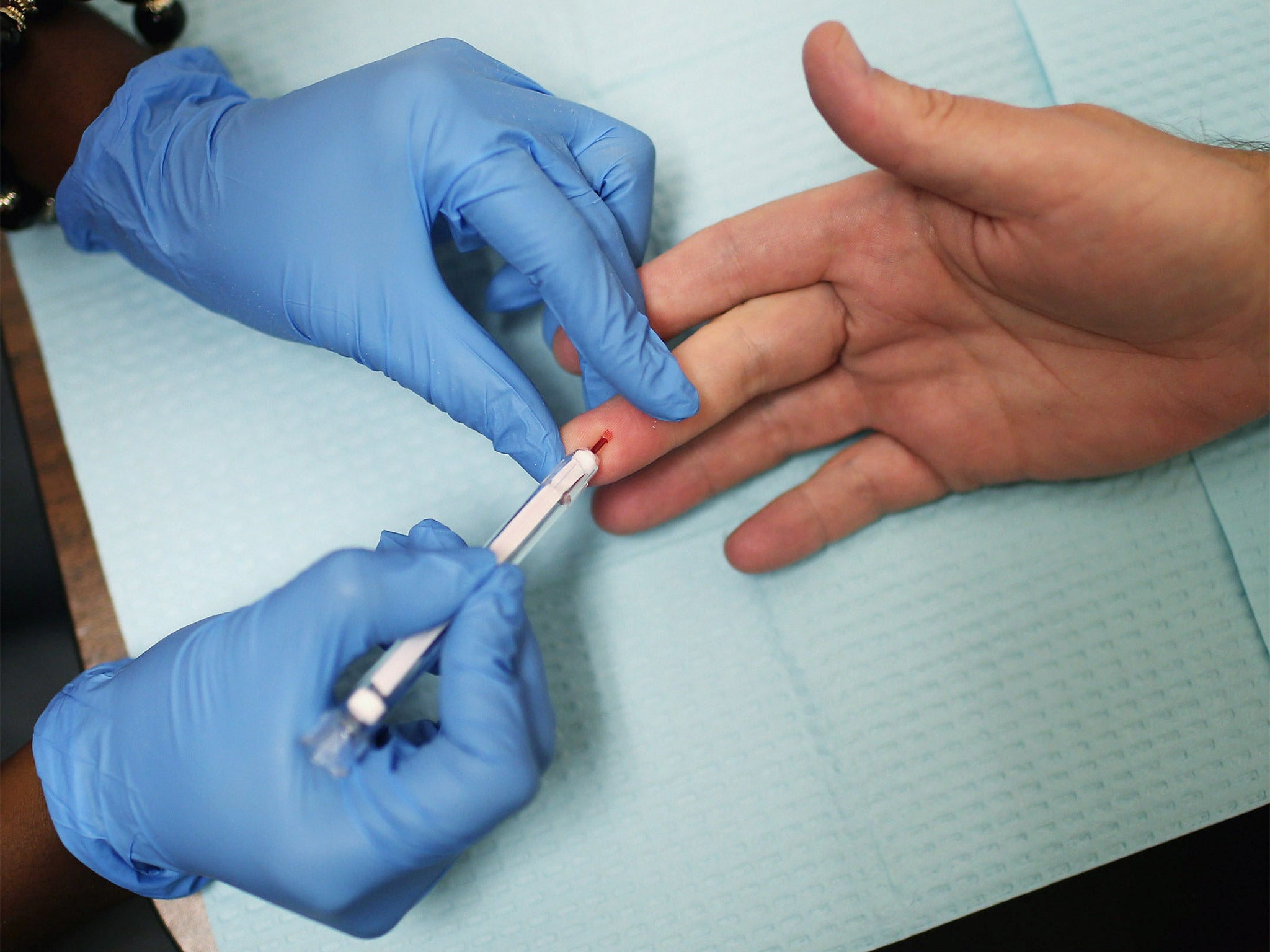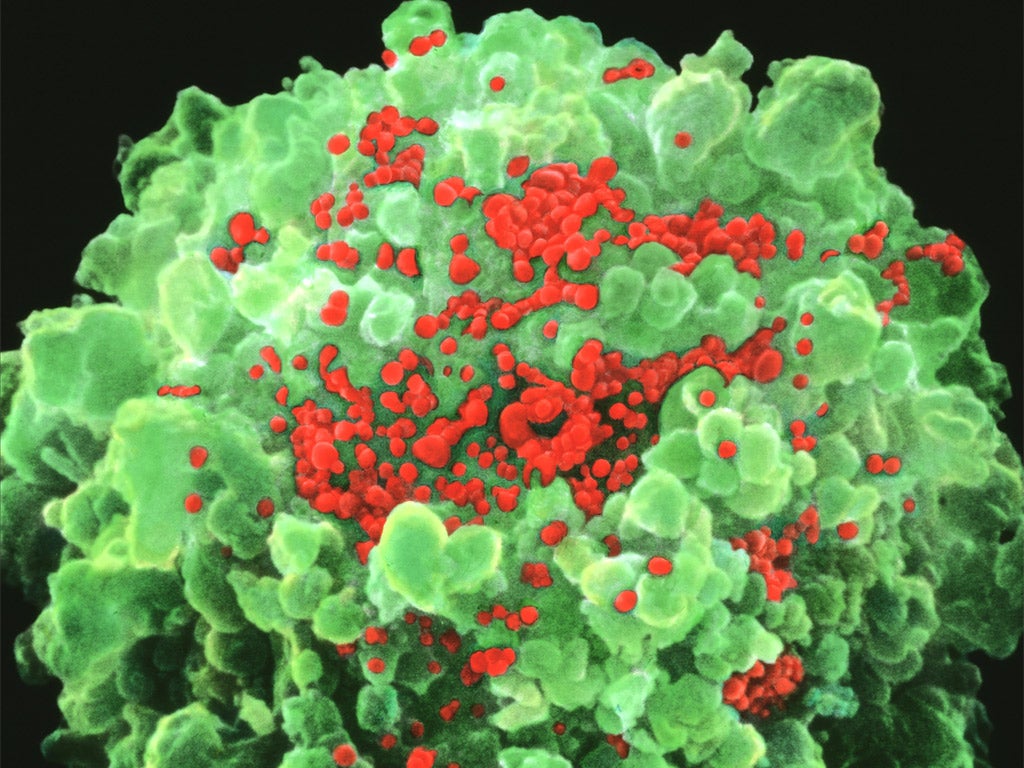HIV vaccine tests showing very positive results, researchers say
Tests still need to be made on humans

Your support helps us to tell the story
From reproductive rights to climate change to Big Tech, The Independent is on the ground when the story is developing. Whether it's investigating the financials of Elon Musk's pro-Trump PAC or producing our latest documentary, 'The A Word', which shines a light on the American women fighting for reproductive rights, we know how important it is to parse out the facts from the messaging.
At such a critical moment in US history, we need reporters on the ground. Your donation allows us to keep sending journalists to speak to both sides of the story.
The Independent is trusted by Americans across the entire political spectrum. And unlike many other quality news outlets, we choose not to lock Americans out of our reporting and analysis with paywalls. We believe quality journalism should be available to everyone, paid for by those who can afford it.
Your support makes all the difference.A new kind of vaccine has shown “striking” results in tests against HIV, raising hopes of a therapy to protect people from AIDS.
The vaccine, which works by altering DNA, completely protected monkeys from multiple different forms of the virus, scientists in the USA said.
While the vaccine will still need to be tested in humans, and its long-term safety remains uncertain, experts said it represented an “exciting” development.
Normally, vaccination works by provoking an immune response. This "alternative vaccine" represents a new approach. Scientists at the Scripps Research Institute in California first engineered a new molecule they say can block HIV from attaching to cells. They then injected genetic material from the artificial molecule into the muscles of rhesus muscles, stimulating its production in the bloodstream.
In experiments reported in the journal Nature, they found that the four monkeys injected were protected even from very high levels of the simian form of HIV. The monkeys were protected for at least 34 weeks and showed no sign of infection despite being administered with 16 times the amount of virus required to infect a control group.
The researchers behind the study said they wanted to proceed to human tests within a year.

Lead researcher Professor Michael Farzan told the BBC: “We are closer than any other approach to universal protection, but we still have hurdles, primarily with safety for giving it to many, many people.”
Experts not involved in the study agreed the results were impressive.
Professor Nancy Haigwood, of Oregon Health & Science University said the new approach was “very clever and very powerful” and “much better than any vaccine on the horizon”.
The search for a vaccine for HIV has been going on for three decades with only very limited success. The virus evolves quickly and has so far eluded scientists’ attempts to develop a therapy that can offer significant protection.
Clinical trials of pre-exposure prophylaxis (PrEP) pills that protect people against HIV infection, and are already available in the USA, are ongoing in the UK and have so far shown very positive results.
People living with HIV can also live long and healthy lives on antiretroviral drug treatments.
However a vaccine against the virus is still considered an important goal because of the cost of drugs and the difficulty many people have maintaining a daily drug regimens.
Leading HIV/AIDS expert Dr Anthony Fauci, of the US National Institutes of Health, said that the new research marked “an important step toward our goal of putting HIV into sustained remission in chronically infected people”.
If human trials of the new vaccine take place, the first step would be to test whether it can keep virus levels in HIV+ people in check. Following this, a trial of its preventative ability in people at high risk of infection would be carried out.
Yusef Azad, director of policy and campaigns at the UK’s National AIDS Trust said: “This is an exciting piece of research with what appear to be striking results. Of course further research is needed before we can know how it might be applied to humans. But for any infectious disease, including HIV, a vaccine remains the most effective way of controlling an epidemic and in the long run eradicating the infection. We still lack an HIV vaccine. Any steps forward towards an HIV vaccine must be warmly welcomed.”
Join our commenting forum
Join thought-provoking conversations, follow other Independent readers and see their replies
Comments